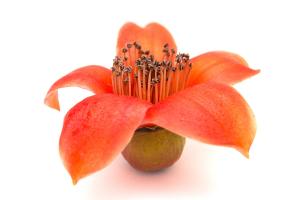Is a Tomato a Nightshade Plant?
There has been a lot of debate and confusion regarding whether or not tomatoes are considered to be a nightshade plant. Nightshade plants belong to the Solanaceae family, which includes edible and poisonous plants such as potatoes, eggplant, peppers, and tobacco. Here, we will discuss the scientific classification of tomatoes, their relationship with nightshade plants, and the potential health benefits and risks of consuming them.
Scientific Classification of Tomatoes
Tomatoes are scientifically classified as Solanum lycopersicum. The Solanum part of the name classifies it into the Solanaceae family, which makes it technically a nightshade plant. The lycopersicum part of the name indicates that it is a specific type of Solanum plant.
Tomatoes were first domesticated in the Western hemisphere and made their way to Europe during the 16th century. They quickly became a popular food item and are now widely cultivated and consumed around the world.
Relationship with Nightshade Plants
While tomatoes are technically classified as a nightshade plant, they have many differences from other nightshade plants such as bell peppers, eggplant, and potatoes. They do not contain the same toxic alkaloids found in other nightshade plants that can lead to severe illness or even death if consumed in large quantities.
However, some people may have an allergic reaction to consuming tomatoes due to their sensitivity to a protein called lycopene. This can cause skin rashes, digestive issues, or even anaphylaxis in extreme cases. It is important for those with a tomato allergy or sensitivity to avoid consuming them.
Health Benefits and Risks
Tomatoes are a rich source of vitamins, minerals, and antioxidants that provide numerous health benefits. They are particularly high in vitamin C, potassium, and lycopene, which has been linked to a reduced risk of certain cancers and heart disease.
However, there are also some potential health risks associated with consuming tomatoes. They are high in histamines, which can trigger allergic reactions or cause stomach irritation for some individuals. They are also high in oxalates, which can contribute to the formation of kidney stones in those prone to them.
Conclusion
To summarize, tomatoes are technically classified as a nightshade plant but do not contain the same harmful alkaloids found in other nightshade plants. They are a healthy and nutritious food item that provides numerous health benefits but may also pose risks for some individuals due to allergies or sensitivities. It is crucial to seek medical advice if you experience any adverse reactions after consuming tomatoes.

 how many times do yo...
how many times do yo... how many planted tre...
how many planted tre... how many pine trees ...
how many pine trees ... how many pecan trees...
how many pecan trees... how many plants comp...
how many plants comp... how many plants can ...
how many plants can ... how many plants and ...
how many plants and ... how many pepper plan...
how many pepper plan...





























